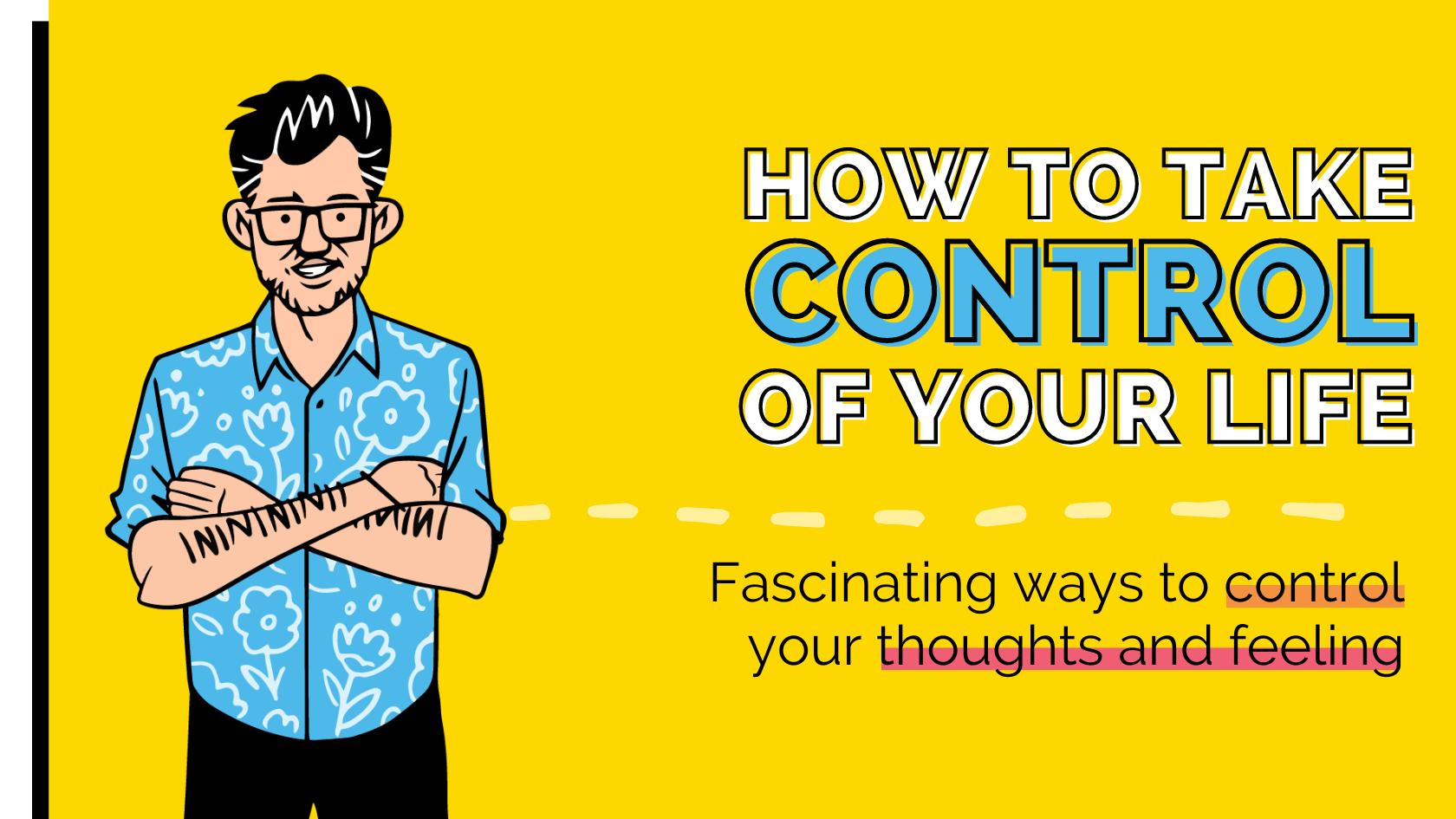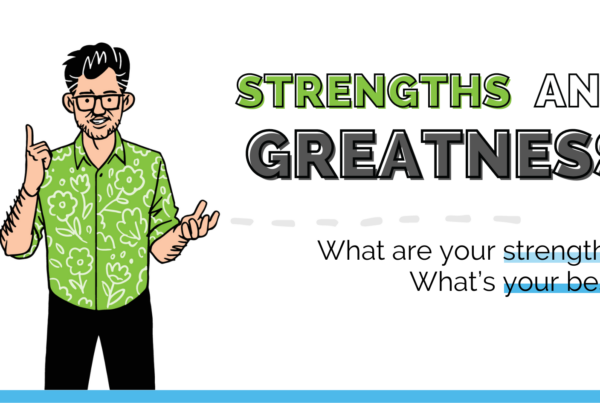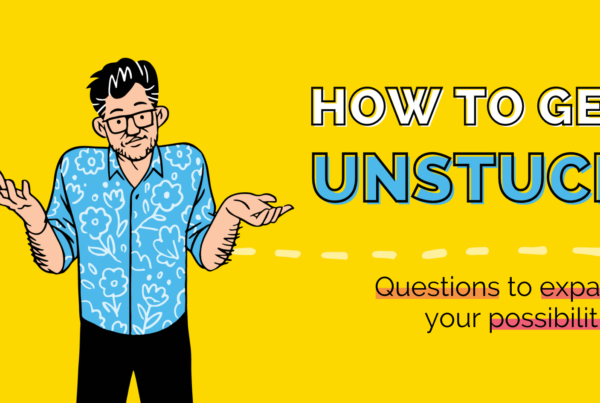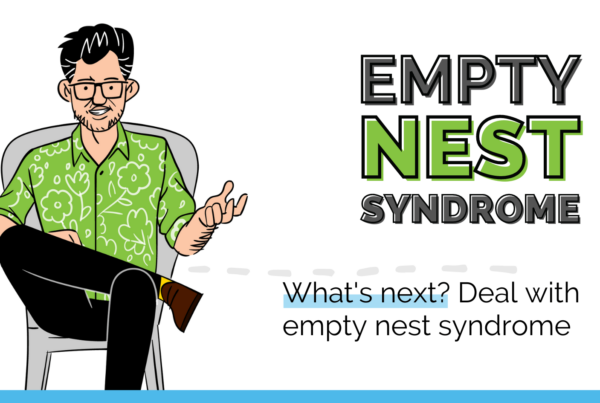
Don’t be fooled by the title of this article. Because although it’s about taking control of your life, in reality, we control less than we realize. A LOT less.
Now you might want to control whether or not you get the promotion, how others perceive you, or if it rains on your wedding day. But the truth is that you can’t even control your own thoughts and feelings, much less external life events.
But before this spirals into some vortex of passive hopelessness where you feel you are just flotsam and jetsam on the currents of fate …, let me inject some enthusiasm back into this text by telling you what you can control.
Your reactions to your thoughts. Your reactions to your feelings.
Viktor Frankl said: “Between stimulus and response lies a space. In that space lie our freedom and power to choose a response. In our response lies our growth and our happiness.”
So instead of feeling distressed about what we want to control but can’t, it’s much more empowering to shift our focus to the way we react to the world.
In a nutshell, this means turning our attention to how we show up, what we do, and how we commit to the process.
Here’s how to do it.
The Greatest Answers Come From the Greatest Questions
Become a better leader. Better teacher. Better person.
Learn how to ask the right questions the right way with this free download.
Eight Ways to Ask a Question Well
1. Build Your Influence Muscle
I’m a big fan of Stephen Covey’s Circle of Concern and Influence. It’s a fascinating model that can help to ease worry and boost your sense of autonomy.
The circle of concern is a catch-all for a huge range of things – global warming, economic conditions, your partner’s fashion choices, workplace dynamics, etc.
The takeaway here is that all of this stuff is beyond your control. Devoting your effort and concern to it is a waste of time and energy.
Then there’s the circle of influence. This is the space where we can actually make a difference.
Who do you choose to be? How do you choose to react? How will you contribute to something bigger?
This is the secret to feeling in control of your life – building your influence muscle and liberating yourself from the circle of concern.
I think this is summed up beautifully by Jack Kornfield when he says – “Tend to the part of the garden that you can touch.”
Worry about what’s within reach, what you can touch and influence and shape with your actions. Disregard everything else.
2. Know How Much Is Enough
I’ve repeatedly observed folks achieve remarkable success only to find themselves not quite reveling in happiness as you’d expect.
It’s almost like they’re caught in a perpetual game of “What’s Next?” A race where the finish line keeps shifting, leading to a relentless chase that leaves little room for contentment.
It’s what psychologists call the hedonic treadmill – a cycle of wanting more, whether that’s a fancier bottle of bourbon, a faster car, to be in better shape, or a successful business.
A powerful way to remedy this cycle and unlock control in your life is to ask yourself – how much actually is enough, and what does success look like to me?
Those are two big, juicy questions. By sitting with them, you can really define what contentment means for you.
When you ponder your definition of success, don’t just think materialistically – that’s a one-way ticket back onto the hedonic treadmill. Instead, think about your ambitions for yourself and your ambitions for the world.
I dive into this in a lot of detail in my book How To Begin when I talk about crafting your worthy goal. That goal is something daunting, thrilling, and important that lights you up, challenges you, and gives more than it takes.
When your goal is less about status and stuff and more about changing the world, you know you’re on the right path.
3. Wisen Up to the Drama Triangle
When things go off the rails, our brains bounce around three dysfunctional roles in what’s known as the drama triangle: the Victim, the Persecutor, and the Rescuer.
A short summary is this: If you’re in Victim mode, you’ll feel powerless to change your circumstances. If you’re in Persecutor mode, you’ll blame others. If you’re in Rescuer mode, you’ll take on way too much responsibility – even for stuff that’s not yours.
When you get stuck in that triangle, you lose your self-control. You’re reactive. You behave in a way that is not the best version of yourself. You see threats everywhere, start conflicts and assume bad intent. It’s a totally dysfunctional, out-of-control place to be.
It’s almost impossible to avoid getting triggered into the drama triangle – it happens to everyone!
But it is not too difficult to get unstuck from the drama and focus your energy elsewhere. The trick is learning to notice when you’re getting sucked in, and then actively shift to a healthier headspace.
For example, if you relate to the victim mindset, notice when you start having thoughts like: “I can’t do this,” or “this is unfair,” and challenge yourself to become more solutions-focused.
Similarly, if you start falling into rescue mode, instead of trying to save everyone, try coaching them instead.
What does that mean?
Ask questions and encourage the people around you to come up with their own solutions, instead of leaping in to fix things for them. Guide them to the answer with curiosity, rather than foisting your own well-meaning advice on them.
4. Prioritize Self-Care
Keeping a cool head is much easier when you take good care of your body.
I know you’ve heard it before, but it’s true – your body is the physical engine that fuels your mind.
When you work out regularly, eat well, and drink enough water, you’re giving your brain a better chance to be the best version of itself.
I get that when life feels overwhelming, your weekly gym class might be the first thing to go. But trust me, creating a healthy routine and structure around self-care is one of the most valuable things you can do.
And speaking of control – what you can control is what you put into your body and how much you move it. So love yourself fiercely by eating well, moving often, and sleeping plenty!
5. Learn the Art of Saying No (Or Yes More Slowly)
Managing your time effectively is a surefire way to feel more in control of your life. To do it well, you need to know two things.
First off, you need to know what truly matters to you. Unless you know what success looks like, it’s hard to know how to manage your time to get there.
Secondly, you need to become fantastic at saying no to the wrong stuff, so you can say yes to the right stuff. As Derek Sivers famously put it, “If it’s not a ‘hell yeah,’ then it’s a ‘no’.”
Now, I get it. It’s tough to say no to people, but, unfortunately, sometimes we really do need to say no, or at least figure out a way to say no to one thing in order to say yes to something else.
Here are a few questions you can ask that will help you say yes a little more slowly:
- Why are you asking me?
- Who else have you asked?
- When you say this is urgent, what do you mean?
- According to what standard does this need to be completed? By when?
- If I couldn’t do all of this but could do just a part, what part would you have me do?
- What do you want me to take off my plate so I can do this?
6. Find Your Heroes
Fairly regularly, people reach out and ask me to be their mentor. It’s very flattering.
Nonetheless, my response is universally a “no”. Not because I don’t like helping people – I do! It’s because I don’t have the capacity.
Going back to time management, I’m deliberate about saying “no” unless I can muster up a “hell yes.”
But here’s the thing – people don’t really need mentors. They need heroes.
I always share with those people who’ve knocked on my door something Seth Godin says: “Mentoring doesn’t scale, but heroes – heroes can influence you when they’re not even in the room. They are models for us simply by the way they live their lives.”
So, instead of looking for a one-to-one mentor to help you build the life you want, find the people who show up in the world like you want to.
What are they doing? How do they think big and live brilliantly? What qualities do they have? And how can you develop some of that capacity within yourself?
By knowing who your heroes are, you’ll start to make choices that are more in line with your values, and that, in turn, will help you take control of your life.
7. Surround Yourself With Great People
Jim Rohn once said, “You’re the average of the five people you spend the most time with.”
And it makes sense if you think about it. If your best friends are rich, you’ll probably be rich. If they all smoke, you’ll probably smoke too.
Why is this important? Because you can control who you spend your time with, and these people greatly impact your well-being.
In How to Begin, I talk about the four energies that everyone needs in their life to unlock their greatness:
- The steady warrior who stands by you no matter what
- The healer who encourages you when things are hard and helps you get back to your best self
- The teacher who provides guidance and enables you to overcome challenges
- The visionary who inspires you to unleash your potential and stretch your comfort zone
You likely already have one or two of these energies within yourself, but having all four is the key to moving through life optimally, with full support.
And If you’re not sure you’ve got these energies in your life right now, I recommend joining our online community, The Conspiracy. It’s where people like you and me gather to learn, grow and work on worthy goals.




